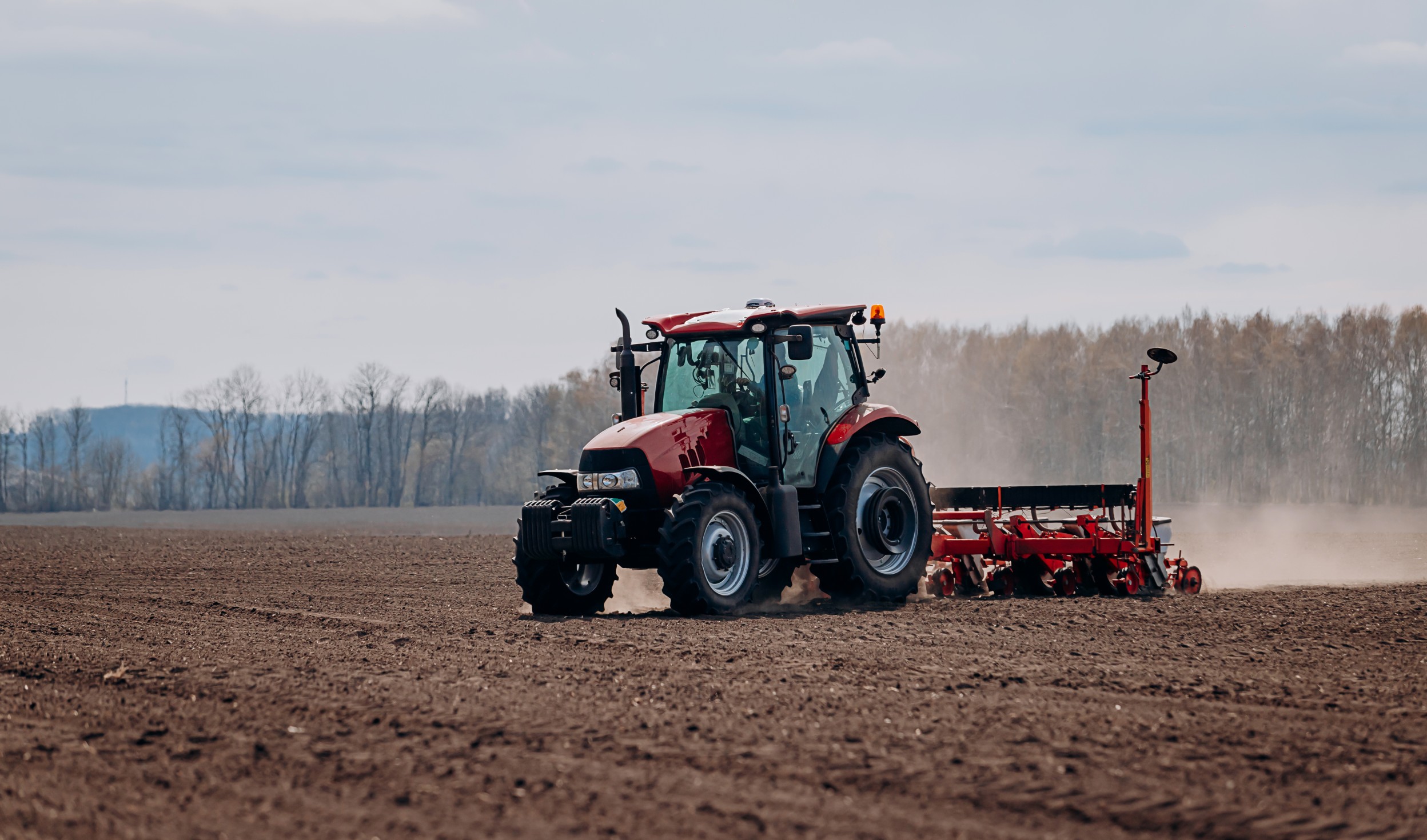Equipment Leasing: Reducing Financial Burden and Increasing Flexibility for Farmers

Farming has always been capital-intensive, and the cost of acquiring and maintaining modern agricultural machinery can be overwhelming for many farmers, especially those with smaller operations. For farmers like Lucas, who runs a mid-sized farm in Kansas, purchasing equipment like tractors, combines, or irrigation systems outright is simply not feasible. This is where equipment leasing comes in as a viable and cost-effective solution.
Equipment leasing allows farmers to use the latest technology and machinery without the upfront financial burden of purchasing. Instead of making a significant investment in buying machinery, leasing gives farmers access to the tools they need while preserving their capital for other critical areas of their operations. This blog will explore how equipment leasing is changing the landscape of modern farming, providing flexibility and financial relief to farmers across the globe.
Equipment leasing is an arrangement in which farmers can rent or lease agricultural machinery for a specific period, typically ranging from months to several years. Rather than buying the machinery outright, farmers pay a lease fee that grants them access to the equipment without the upfront capital expenditure.
The leasing option provides farmers with access to advanced machinery—such as tractors, combines, harvesters, and even irrigation systems—without the need for loans or heavy debts. At the end of the lease period, farmers can either return the equipment, purchase it at a reduced price, or lease a new model with upgraded technology.
For Lucas, leasing tractors and harvesters has allowed him to scale his operations without taking on excessive financial risk. He can use the machinery during the peak season when he needs it most and avoid the cost of owning and maintaining equipment during the off-season.
Key Leasing Models:
Operating Lease: Farmers rent equipment for a short-term period and return it after use, avoiding the full cost of ownership.
Finance Lease: Farmers lease equipment with an option to purchase it at the end of the term.
Seasonal Leasing: Ideal for farmers who only need equipment during specific times of the year, allowing for flexibility and cost savings.
Equipment leasing offers a wide range of benefits that make it an attractive option for farmers looking to manage their cash flow while ensuring they have access to the latest technology.
1. Lower Upfront Costs
The primary benefit of leasing equipment is the reduction in upfront costs. Purchasing agricultural machinery requires a significant financial commitment, and many farmers simply do not have the capital to make these investments. Leasing allows farmers to spread the cost over a period, making it more manageable and preserving cash flow for other critical investments, such as seeds, fertilizers, or labor.
For Lucas, leasing his combine harvester freed up cash that he could invest in expanding his crop acreage and upgrading his irrigation system. This flexibility has allowed him to grow his farm without taking on heavy debt.
2. Access to the Latest Technology
Agricultural technology is evolving rapidly, and farmers who own their equipment often find themselves stuck with outdated machinery after a few years. Leasing offers farmers the ability to upgrade to the latest models as soon as their lease expires. This ensures they are always using the most advanced and efficient machinery available, improving productivity and reducing operating costs.
Lucas appreciates that he can lease newer models of tractors and harvesters with precision farming capabilities, which have helped him improve yields and reduce waste.
3. Reduced Maintenance and Repair Costs
Leasing equipment often comes with maintenance and repair services included in the contract. This reduces the burden on farmers to maintain their machinery and handle expensive repairs. If a leased machine breaks down, the leasing company is responsible for fixing or replacing it, ensuring that farmers can focus on their operations without worrying about unexpected costs.
Lucas has experienced firsthand the convenience of leasing when his leased tractor needed repairs during the harvest season. The leasing company promptly replaced the tractor, allowing him to continue his work without delays.
4. Flexibility and Scalability
Leasing offers farmers the flexibility to scale their operations as needed. Whether they are expanding their farm or planting new crops, farmers can lease the equipment they need for a specific season or task without committing to long-term ownership. Seasonal leasing is particularly beneficial for farmers who only need specialized machinery during peak times, such as planting or harvesting.
For Lucas, seasonal leasing has allowed him to experiment with growing new crops without the financial burden of purchasing new equipment. He can test different farming techniques and crops without the risk of being tied to machinery he might not need in the future.
While equipment leasing offers many benefits, it is not without its challenges. Farmers need to carefully evaluate leasing agreements to ensure they are getting the best deal for their specific needs.
1. Total Cost of Leasing
Although leasing reduces upfront costs, it can be more expensive in the long run compared to buying machinery outright. Farmers need to calculate the total cost of leasing over the term of the contract and compare it to the cost of purchasing the equipment. In some cases, buying may be more cost-effective, especially for farmers who plan to use the machinery for many years.
Lucas has found that while leasing works well for high-cost equipment like harvesters, he prefers to purchase smaller, less expensive tools that he uses year-round.
2. Equipment Availability
Another challenge is the availability of leased equipment during peak seasons. Farmers who rely on leasing may find that the specific equipment they need is in high demand during planting or harvest times, leading to delays in securing machinery. It’s important for farmers to plan ahead and reserve equipment well in advance to avoid disruptions.
3. Contract Terms and Flexibility
Leasing agreements vary, and farmers need to pay close attention to the terms and conditions of their contracts. Some leases may include restrictions on how the equipment can be used or require farmers to pay for certain repairs. Additionally, farmers need to consider what happens at the end of the lease—whether they plan to return the equipment, purchase it, or extend the lease.
As farming becomes more capital-intensive and technology continues to evolve, equipment leasing will likely become an even more popular option for farmers around the world. New leasing models, such as leasing-as-a-service, are emerging, providing farmers with greater flexibility and access to a wider range of equipment. Additionally, digital platforms are making it easier for farmers to compare leasing options, customize contracts, and manage their leases more efficiently.
For Lucas and many other farmers, equipment leasing is a crucial tool that allows them to remain competitive in a rapidly changing agricultural landscape. By providing access to modern machinery without the financial burden of ownership, leasing is helping farmers improve productivity, manage cash flow, and adapt to new challenges.
Equipment leasing is reshaping the way farmers approach their operations, offering them a more flexible and financially viable option to access the machinery they need. For farmers like Lucas, leasing has provided the tools necessary to expand his operations, adopt the latest technology, and maintain financial stability.
However, leasing is not a one-size-fits-all solution. Farmers must carefully weigh the benefits and challenges before committing to a leasing contract. Platforms like AiDOOS can help farmers navigate the complexities of equipment leasing by connecting them with experts who can provide tailored advice on leasing options, costs, and contract terms. By leveraging AiDOOS, farmers can make informed decisions and access the equipment they need to thrive in today’s competitive farming industry.

By redesigning packaging, exploring reusable models, investing in smart tracking, and leveraging the VDC model for execution, beverage manufacturers can reduce their environmental footprint while boosting their brand relevance and operational resilience.

Even the most capable in-house IT teams often fall short when it comes to minimizing downtime. While Managed Services solve much of the downtime problem, the VDC model supercharges it with flexibility, scalability, and domain-specific expertise.